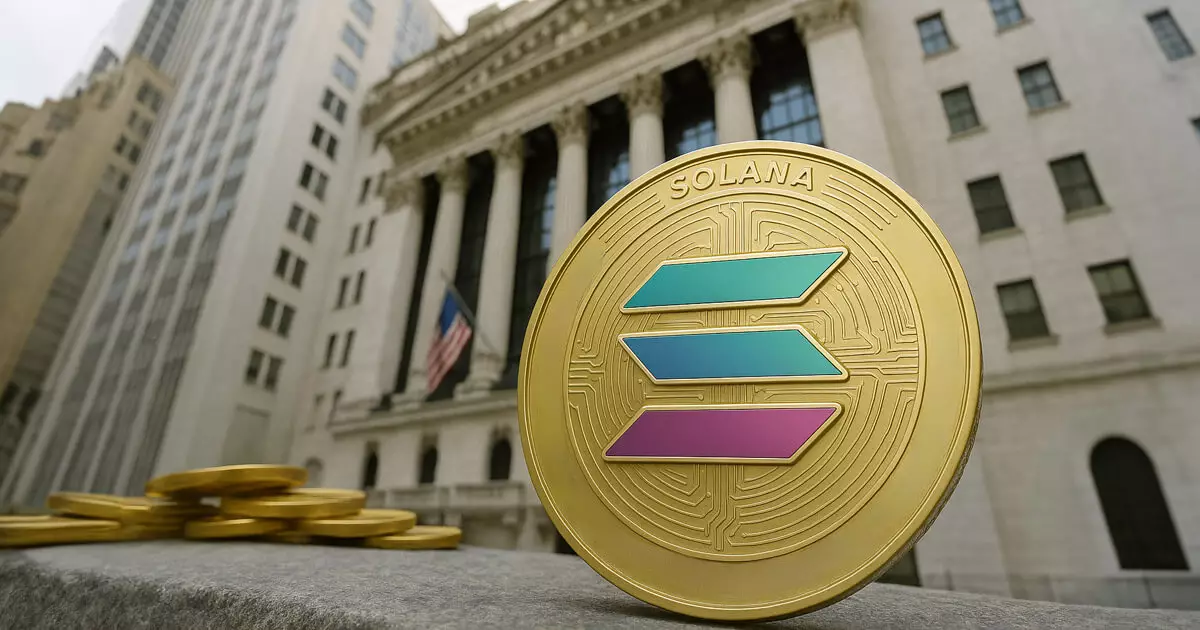Grayscale is making waves again, boldly stepping forward in its mission to launch a Spot Solana Exchange-Traded Fund (ETF). The firm filed a Form S-1 with the U.S. Securities and Exchange Commission (SEC), eager to transition its Grayscale Solana Trust into a publicly traded ETF. This transformation is noteworthy not only for its ambitious nature but for the broader implications it holds for the crypto landscape. With crypto traders on platforms like Polymarket assigning an impressive 83% chance of SEC approval before year-end, one can’t help but wonder: is this the turning point the market has been waiting for?
The Market’s Hesitation and Regulatory Shadow
While the enthusiasm for the Solana ETF is palpable, skepticism persists. Predictions indicate only a 23% likelihood of approval before the close of July. This hesitation reflects the regulatory trepidations that have plagued the cryptocurrency sector. The SEC under former Chair Gary Gensler established a notably stringent stance regarding staking and crypto ETFs, resulting in lawsuits that have cast a chilling effect on bold initiatives. Grayscale’s cautious submission showcases the multifaceted challenges confronting the crypto industry as it endeavors to gain legitimacy in the eyes of regulators.
A Conservative Approach in an Evolving Landscape
Grayscale’s decision to initiate the ETF with a cash-only framework and forgo staking underscores a deliberate strategy aimed at compliance amidst uncertainty. The stipulation that neither the Trust nor its associated entities will engage in staking signifies a reluctance to expose the ETF to the risks that plagued other crypto platforms. This cautious posture is not merely defensive; it’s emblematic of an industry still grappling with foundational legitimacy. It seems almost counter-intuitive in a sector that thrives on innovation and disruption, yet regulatory compliance is now the name of the game.
Shifting Sentiments and Future Opportunities
The changing tide at the SEC—especially following the transition to a new administration—provides a glimmer of hope for equity and growth in the crypto sector. Analysts are keenly observing how this regulatory environment unfolds. Experts advocate for integrating staking mechanisms into ETFs for proof-of-stake cryptocurrencies like Solana and Ethereum. The introduction of staking could be a game changer, offering investors not just the promise of asset appreciation but also yield generation in a space that has been historically resistant to such features.
The Role of Major Players
With Coinbase earmarked as the ETF custodian and BNY Mellon taking on the roles of administrator and transfer agent, Grayscale’s strategic alliances reflect a dedication to robust governance and oversight. This selection of partners underscores an effective blend of innovation and security—traits that both institutional and retail investors seek in an increasingly volatile market. The association with established financial entities could enhance confidence in the Solana ETF, drawing in wary investors who demand assurance amidst chaos.
In this pivotal moment, we must ask ourselves: will Grayscale’s conservative tact prevail under the weight of federal scrutiny, or is it merely a stopgap in a much larger battle for acceptance? The cryptocurrency landscape is evolving, and with the Solana ETF potentially at the forefront, we are on a precipice of transformation. The stakes could not be higher.
















Leave a Reply